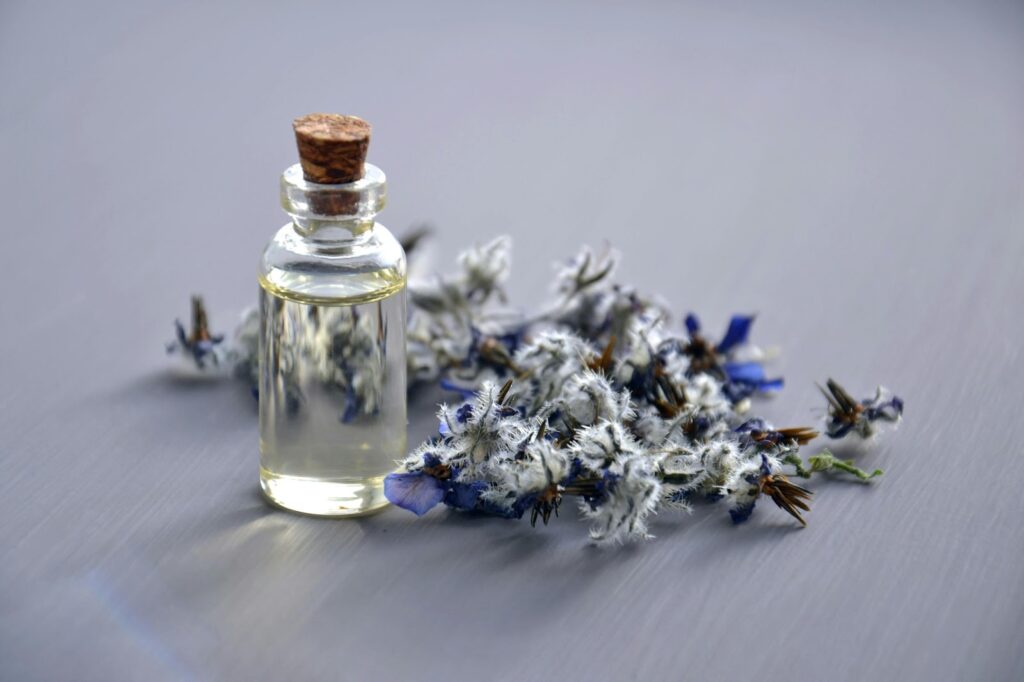The 7 Essential Oils Needed for a Healthier You

What is Essential Oil? Essential oil is a mixture of natural aromatic volatile oils extracted from plants. The most common methods of extraction are steam distillation and cold pressing. Essential oils are used in aromatherapy, pharmaceuticals, fragrance, food, and flavors. They have been utilized medicinally over the centuries and have become an established complementary natural therapy. Benefits of Essential Oils Antioxidant It’s also an excellent choice if you are looking to reduce pain and enjoy its relaxing and soothing properties while opting for an aromatherapy massage. A 2020 study showed the effectiveness of lavender oil in treating psoriasis-like skin inflammation, offering scientific evidence for its topical use. 2. Rose Essential Oil One of the most versatile oils for skincare, rose essential oil, is obtained from the petals of Rosa Damascena Mill. It helps prevent collagen breakdown, lowers gene expression related to skin aging, and improves antioxidant enzyme activities. Research also highlights its effectiveness in protecting the skin from UV-induced damage. Studies have shown that rose essential oil provides pain relief in patients with dysmenorrhea, helps regulate irregular menstrual periods, and supports uterine health. It also has natural antidepressant properties that can boost mood during menstruation, helping you feel more balanced and at ease. Additionally, if you just had a C-section, a 2020 study found that simply inhaling a few drops of rose essential oil after surgery could help you ease pain and calm those post-surgery jitters. 3. Eucalyptus Essential Oil The essential oil of Eucalyptus is revered for its antibacterial and anti-inflammatories properties. When you have a cold or the flu, eucalyptus essential oil is an expectorant to ease discomfort and remove toxins and germs from your body. Conversely, Eucalyptus essential oil offers exceptional care for various scalp conditions if used as a scalp tonic. It effectively combats dandruff and seborrheic dermatitis while providing a natural defense against bacterial and fungal infections. To maximize its benefits, blend eucalyptus oil with nourishing carrier oils or opt for hair care products specifically formulated with the ingredient. 4. Tea Tree Essential Oil Once a hidden gem in traditional medicine, it’s now a go-to natural solution for combating infections and calming inflammation. Looking at everything from its germ-fighting to local antiseptic for burns and cuts, tea tree essential oil can provide relief for various health issues, including: If you have oily or acne-prone skin, tea tree oil can be a game-changer for you. Studies show that tea tree oil is especially effective for oily and acne-prone skin, helping to balance oil production, clearing up stubborn spots, and even improving chronic gingivitis. 5. Rosemary Essential Oil Rosemary essential oil, rich in compounds like eucalyptol and camphor, can help you fight harmful microbes and neutralize damaging free radicals, protecting your skin and overall health. It has been used for centuries to improve brain function, as well as neurological deficits and inflammatory conditions. Studies have shown that rosemary essential oil can potentially protect the liver from damage by boosting the body’s defense mechanisms. Rosemary is also used as a health-boost ingredient in the drinking industry. With its beneficial biological properties, if you’re looking for a natural way to support your health, it’s definitely a go-for choice. 6. Peppermint Essential Oil Peppermint is a genus of plants in the taxonomic family Lamiaceae found in temperate regions worldwide. It can help protect brain function and promote liver, gastrointestinal, kidney, and nervous health. Plus, it can stop fevers, ease muscle tension, and clear sinuses. Other uses for peppermint essential oil: Peppermint is an excellent choice for easing discomfort after physical activity, energizing, and providing you the stamina to recover. Its analgesic and antispasmodic properties make it great for relaxing tight muscles. The cooling sensation of peppermint is also refreshing after an intense training session. 7. Frankincense Essential Oil Frankincense essential oil can be significantly beneficial if you seek emotional reinforcement and mental peace. Try using it during your meditation and yoga practices to boost concentration. When Frankincense essential oil is used with a diffuser, it alleviates stress and tension and promotes an ambiance of calmness. Research has been made on Frankincense essential oil efficiency as a topical anti-aging therapy and shows promising results. How do I store my Essential Oils? Frequently Asked Q’s Can essential oils be applied directly to the skin? You should always dilute essential oils with a carrier oil before applying them to your skin. How long can I inhale essential oils directly? It’s best to inhale essential oils directly for no more than 15-20 minutes. Keeping it short will help you enjoy the benefits without any discomfort. Is it safe to ingest essential oils? It’s unsafe to ingest essential oils without guidance from a qualified practitioner. Always consult a professional before considering ingestion. How should I store my essential oils? Store your essential oils in a cool, dark place in glass or stainless-steel containers with tightly sealed lids to keep your essential oils fresh. This prevents oxidation and evaporation, ensuring they last longer. What are the benefits of using essential oils in aromatherapy? Using essential oils in aromatherapy can significantly reduce anxiety and improve your mood, making it a great way to enhance your overall well-being and sleep quality. It’s a simple yet effective tool for supporting both your physical and emotional health!

